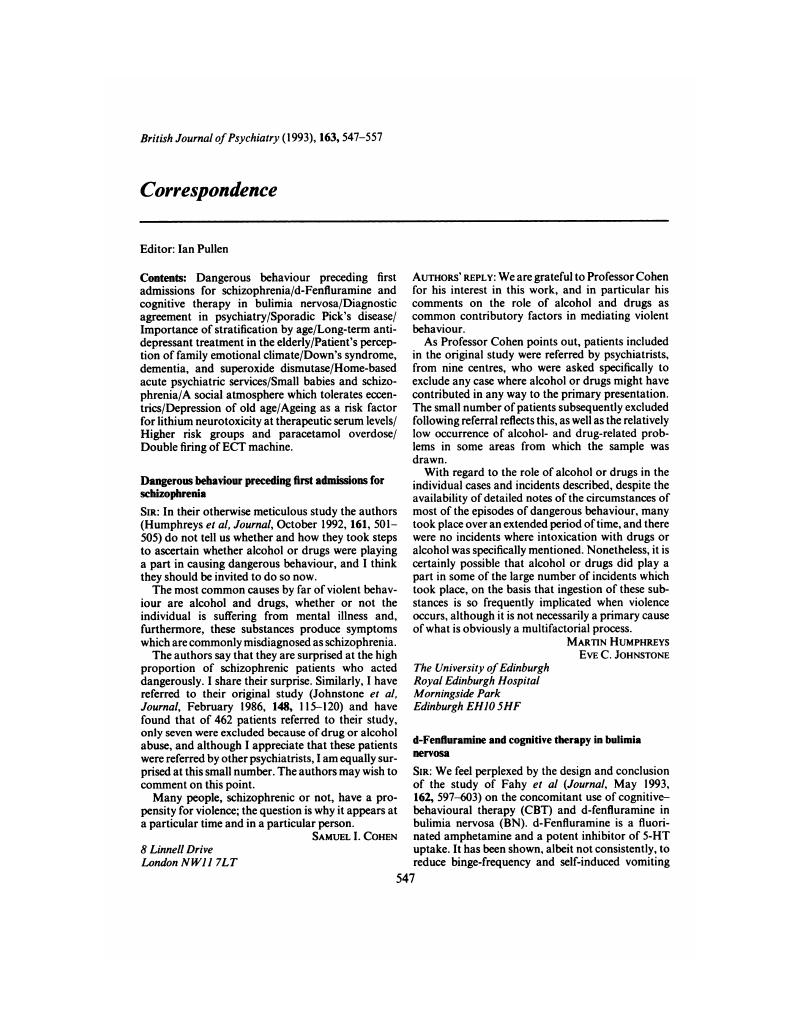No CrossRef data available.
Article contents
d-Fenfluramine and cognitive therapy in bulimia nervosa
Published online by Cambridge University Press: 02 January 2018
Abstract
An abstract is not available for this content so a preview has been provided. As you have access to this content, a full PDF is available via the ‘Save PDF’ action button.

- Type
- Columns
- Information
- Copyright
- Copyright © Royal College of Psychiatrists, 1993
References
Agras, W. S., Rossiter, E. M., Arnow, B., et al (1992) Pharmacologic and cognitive-behavioural treatment for bulimia nervosa: a controlled comparison. American Journal of Psychiatry, 149, 82–87.Google Scholar
Fairburn, C. & Cooper, P. (1989) Eating disorders. In Cognitive Behaviour Therapy for Psychiatric Problems (eds Hawton, K., Salkovskis, P. M., Kirk, J. & Clark, M. C.), pp. 277–314. New York: Oxford University Press.CrossRefGoogle Scholar
Fluoxetine Bulimia Nervosa Collaborative Study Group (1992) Fluoxetine in the treatment of bulimia nervosa. A multicenter, placebo-controlled, double-blind trial. Archives of General Psychiatry, 49, 139–147.CrossRefGoogle Scholar
Spitzer, R. L., Stunkard, A., Yanovski, S., et al (1993) Bingeeating disorder should be included in DSM-IV: a reply to Fairbum et al's “The Classification of recurrent Overheating: The Binge Eating Disorder Proposal”. International Journal of Eating Disorders, 13, 161–169.3.0.CO;2-R>CrossRefGoogle Scholar
Wurtman, J. J., Wurtman, R. J. & Marks, S. (1985) d-Fenfluramine selectively suppresses carbohydrate snacking by obese subjects. International Journal of Eating Disorders, 4, 89–99.3.0.CO;2-D>CrossRefGoogle ScholarPubMed



eLetters
No eLetters have been published for this article.